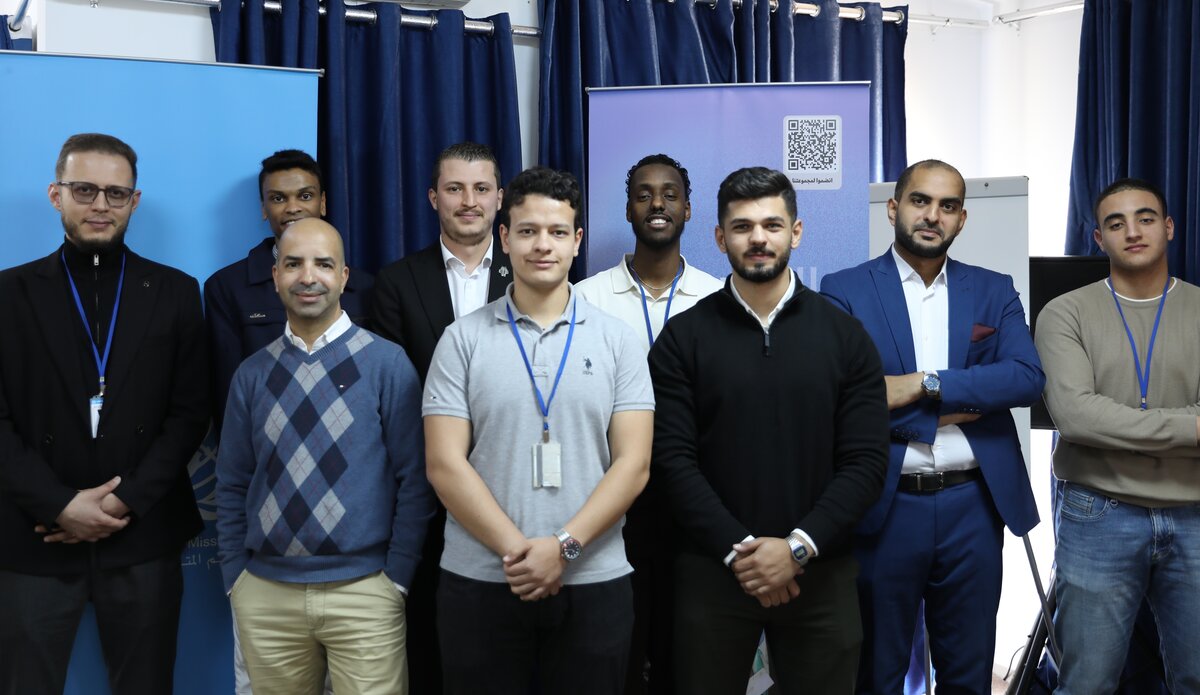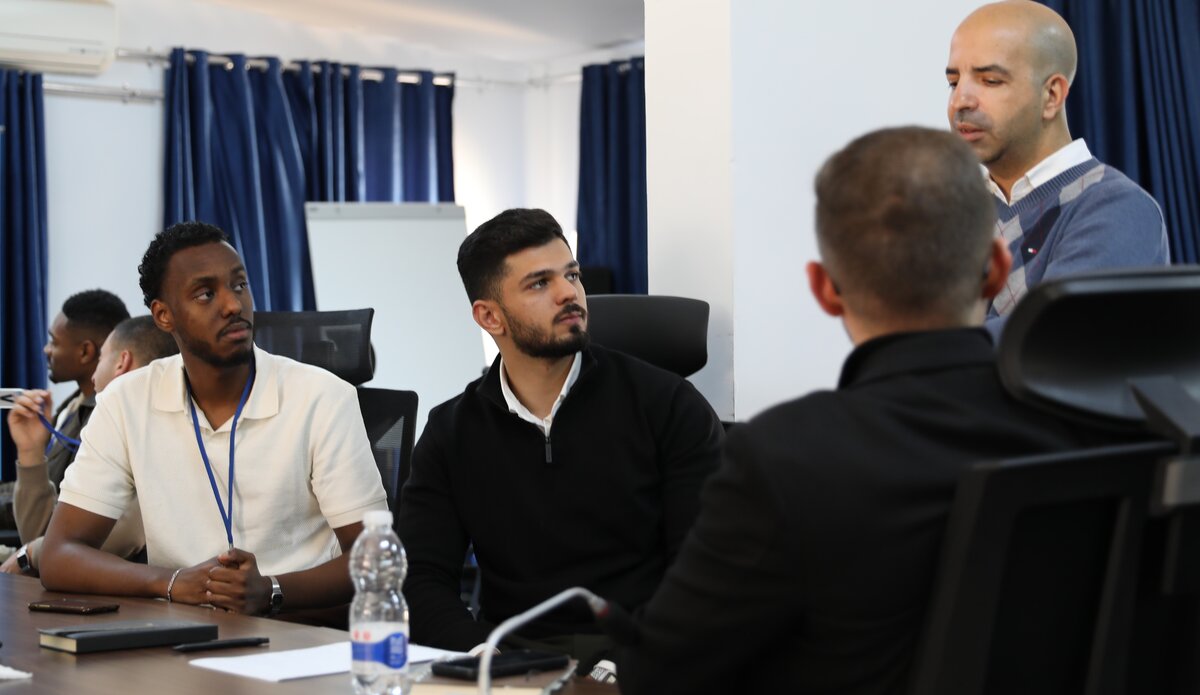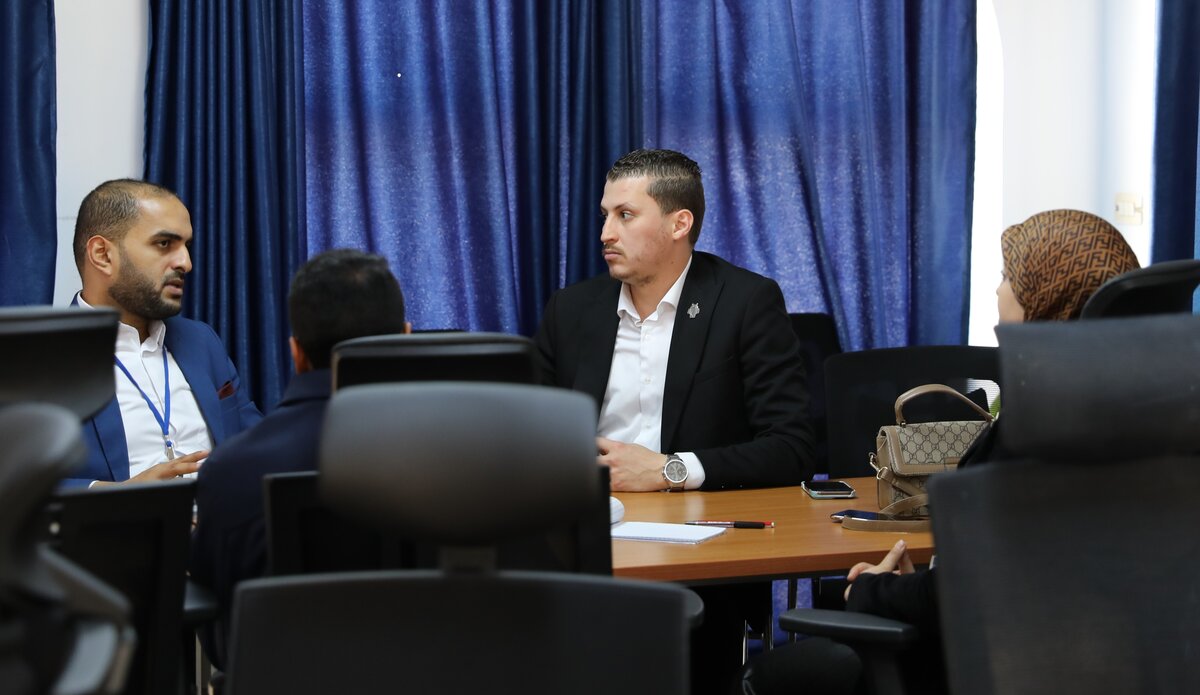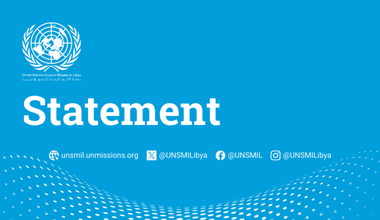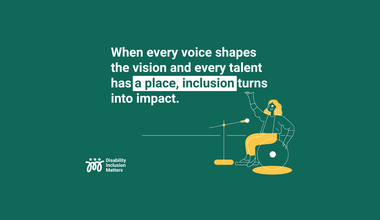Youth express their concerns about the increase of hate speech against different groups in Libya
TRIPOLI – Youth expressed their concern about the increase of hate speech against different groups on social media during an 8 April workshop hosted by the United Nations Support Mission in Libya, calling for a public campaign to raise awareness of the dangers of incendiary rhetoric.
Eleven young men and women from western Libya participated in the Tripoli workshop, which focused on highlighting the distinctions between hate speech and freedom of speech, as well as the importance of media literacy and recognizing media bias.
"Media bias and hate speech are global issues,” one participant said. “The cultural context may differ from one place to another, but we all share the same rights, and we must stand against hate speech wherever it occurs.”
During the deliberations, attendees emphasized the role that media and politicians play in disseminating misinformation and hateful rhetoric, which can lead to armed confrontations and violence against specific groups or individuals.
"The security situation in Libya is very fragile," one participant said. "Sometimes, even minor incidents can amplify hate speech between cities and threaten violent escalation."
Concerns were also raised about hostile rhetoric being directed at different religious sects in Libya by official entities.
"Incitement in the name of religion, especially over minor differences, is one of the most dangerous forms of hate speech, and it may lead to severe consequences," another participant said.
Participants recommended the following ways to prevent hate speech:
- Incorporate awareness of hate speech and cybercrimes into the educational curriculum from an early age.
- Call on Libyan media to avoid the rhetoric of political polarization, promote peace, and embrace a code of ethics.
- Launch cultural exchange programs with neighboring countries to combat xenophobia and strengthen relations with host communities.
- Support local fact-checking initiatives and discover the possibility of using AI to identify and report hateful rhetoric and disinformation.
- Advocate for social justice and decentralization in governance and development, prioritizing transparency.
The workshop was part of a series organized by UNSMIL under its YouEngage initiative, which aims to engage 1,000 young men and women across Libya on different topics by the end of May 2025. So far, UNSMIL has engaged with more than 750 youth participants from Libya’s east, south and west.
 United Nations Peacekeeping
United Nations Peacekeeping UN
UN
